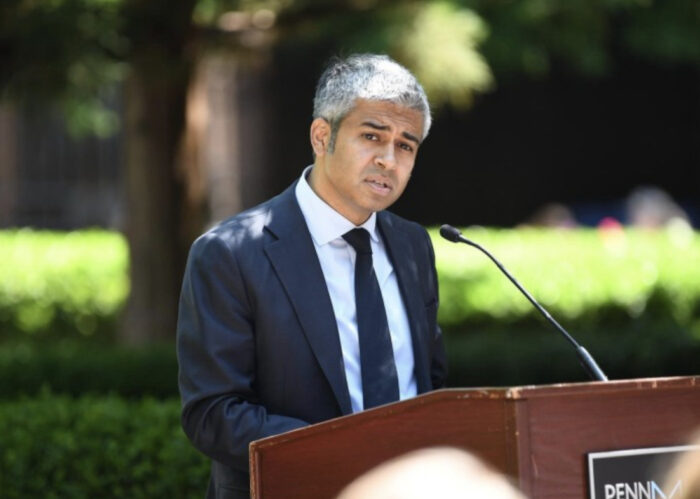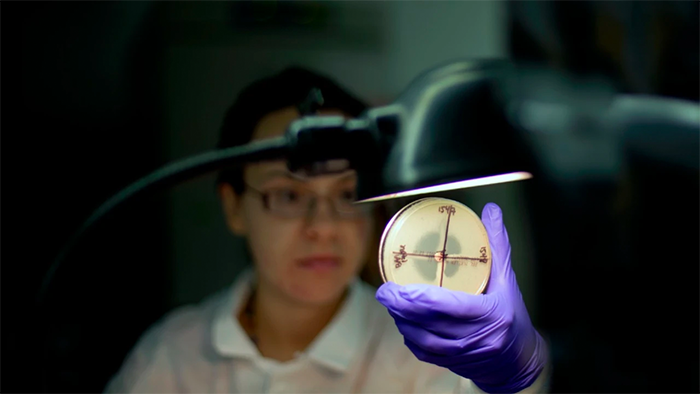US Food and Drug Administration Support for Oncology Drug Development During COVID-19
The coronavirus disease 2019 (COVID-19) pandemic has challenged health care systems worldwide in many ways, from the need for accurate and accessible diagnostics to inform disease surveillance to the importance of creating surge capacity to enable hospitals to meet patient demand. Notable among these challenges has been the pandemic’s effect on the global clinical research enterprise, particularly in oncology.
Like all trials, clinical studies in oncology are resource intensive and require significant logistical coordination to ensure participant safety and data integrity. Oncology trials also often have several unique considerations due to disease severity, regimen complexity, and acute care requirements. The pandemic has introduced a number of challenges for investigators and patients alike, ranging from ensuring access to medication to minimizing infection risk for potentially immunocompromised patients.
Herein, we seek to contextualize recent US Food and Drug Administration (FDA) guidance on clinical trials during COVID-19 to oncology and share insight from the Oncology Center for Excellence (OCE) about regulatory challenges and lessons learned during COVID-19.
Oncology Trials During COVID-19
Early research suggests that COVID-19 has created challenges for trial sponsors at all stages of a clinical study in oncology.1 Investigator responses to industry surveys indicate that patient enrollment into trials has decreased significantly during the public health emergency, with concerns about the availability of patient care and adequacy of investigational product supply. For example, an area of concern for many investigators is ensuring the continuity of investigational treatment regimens. Although some oral products can be delivered to patient homes, other investigational products—especially in oncology—may need to be administered intravenously in a health care facility, which may create issues around mitigating infection risk.1
From a study perspective, many investigators have expressed concerns that pandemic-induced protocol deviations could compromise study quality and data integrity. Sponsors have indicated the importance of shifting to alternative platforms for patient monitoring to reduce the number of in-person site visits and are simultaneously attempting to ensure that relevant data points can be collected in an accurate and precise manner. Data collection during the pandemic may be uniquely challenging in oncology trials, in which the use of different end points to measure the change in certain biomarker-driven populations is more prevalent.1
Contextualizing FDA Guidance to Oncology Trials
The FDA sought to proactively address concerns about disruptions to clinical trials by issuing guidance early in the pandemic.2 In it, the FDA affirmed that the agency’s paramount concern was ensuring the safety of trial participants and described flexible approaches to conducting certain aspects of clinical trials during the public health emergency for sponsors to consider. For example, sponsors may need to make decisions about implementing alternative approaches to patient assessment and monitoring (eg, using telehealth) and make decisions about whether to discontinue the use of investigational treatment based on safety considerations. The agency encouraged sponsors to work with institutional review boards prospectively to identify a process for reporting protocol deviations and developing plans for documentation. However, recognizing that some changes may be time sensitive, the FDA explained that its regulations allow sponsors the flexibility to amend trial processes to prevent imminent hazards without first securing institutional review board approval, conditional on appropriate reporting after such changes had been made.
Many of these situations may be relevant to oncology trials. For example, the agency is still allowing new trials to begin, but recognizes that sponsors may seek to delay trial initiation for various safety concerns, such as patient proximity to an outbreak epicenter. Agency officials are cognizant that some patients—especially those with advanced illness—may rely on trial enrollment to access investigational drugs to treat their condition. The FDA has sought to provide recommendations on alternative methods for investigational product delivery to enable the continuity of ongoing trials in oncology.2 Sponsors should ensure oral medications can be safely stored (eg, with regard to temperature or light exposure) and should evaluate the relative risks of administering infusion-based regimens in alternative care sites. For example, it may be easier to accommodate changes for chemotherapy-based infusions as opposed to cell therapies given the risk differential for adverse effects.2 Increased use of telehealth should support data collection for most trials, with sponsors encouraged to follow best practices for patient privacy and confidentiality during such visits. Not all end points may be conducive to virtual assessment—such as tumor scans or biomarker levels—and sponsors may need to arrange for alternative locations for data collection. The agency recognizes the operational challenges involved for these decisions and advises sponsors to consult with relevant review divisions about trial-specific concerns.
The FDA is committed to open communication with the oncology community during the pandemic, conducting numerous listening sessions with patient advocates and drug developers. Previous OCE initiatives have also helped to minimize disruptions and maintain data integrity during the pandemic. For example, Project Facilitate, which OCE created in 2019, has actively worked to facilitate patient access to investigational products during the pandemic.3 The OCE has also collaborated with the Center for Drug Evaluation and Research to proactively identify and address potential drug shortages. Furthermore, the OCE continues to keep pace with drug review during the pandemic and has approved 8 new molecular entities and 23 new indications between March and May of 2020.4
Regulatory Lessons for the Future of Oncology Innovation
The FDA intends to review all the temporary policies issued during the pandemic to identify which regulatory flexibilities, if appropriate, should be permanently incorporated into agency practice. Much of the guidance and regulatory support issued for oncology trials during the pandemic represent a natural extension of the OCE’s ongoing efforts to accelerate innovation for patients with cancer without compromising on safety or quality.
First, this public health crisis provides the impetus to evaluate the use of oncology drugs outside of traditional trial settings and in different populations. The OCE has previously expressed interest in evaluating the real-world performance of novel therapies, such as efforts to broaden eligibility criteria.5 Initiatives, such as the COVID-19 Evidence Accelerator, will help generate new insights into the experience of patients with cancer during the pandemic.6 Data on the consequences of delayed medical care (eg, screenings) and the experience of patients with cancer and COVID-19 will help inform future studies. Relatedly, the use of alternative approaches for end point assessment during the pandemic provides an opportunity for refining the science around patient-reported outcomes in cancer care. Lessons from COVID-19 will therefore help advance ongoing OCE efforts to quantify the patient experience in oncology trials, such as Project Patient Voice.7
Second, the increased uptake of digital platforms during the pandemic adds to the impetus to decentralize clinical trials to improve operational efficiency and increase patient access. Sponsors could use these tools to support remote enrollment of more diverse patient populations, aligning with the goal of OCE’s Project Community8 to increase minority participation in trials. Likewise, investigator innovation to ensure continuity in investigational product delivery in parallel with ongoing efforts to advance payment and delivery reforms for Oncology Hospital at Home models provide momentum for shifting certain aspects of trial operations to community settings to reduce patient burden.9
The FDA is committed to supporting patient safety and study integrity during the pandemic. We hope that at least one positive outcome of this challenging time for public health will be a wave of new approaches to improving the accessibility and impact of innovation in cancer care.
Relevant and recent posts






